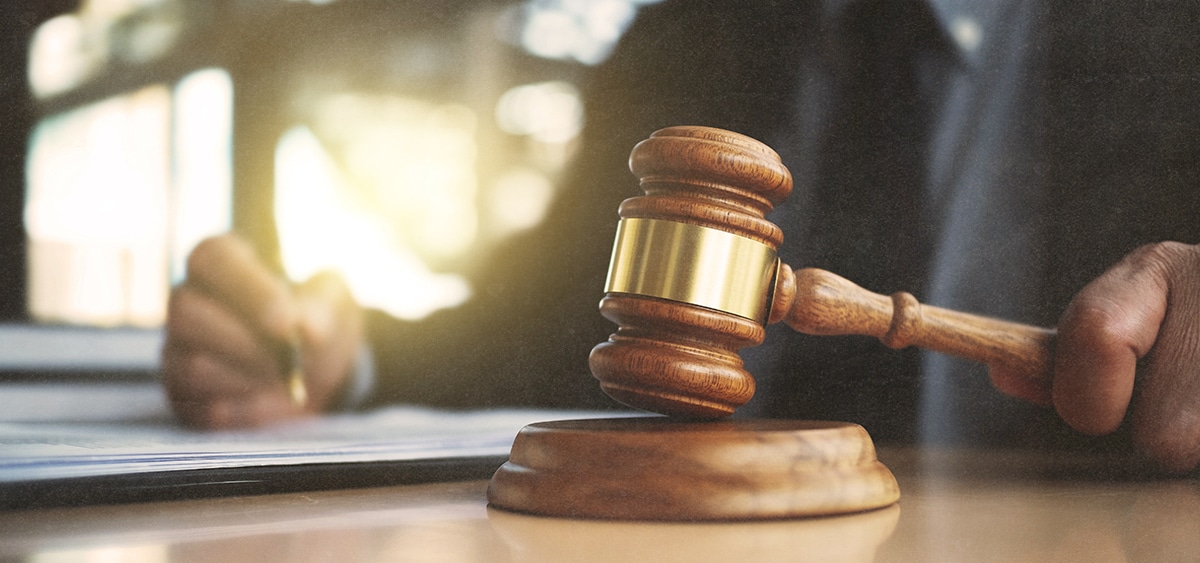featured
Texas Governor Explains His New Stance On Hemp Products As Ban Quickly Advances In Special Legislative Session
Published
2 days agoon

The governor of Texas is detailing where he stands on a renewed push in the legislature to ban most consumable hemp products, seemingly departing from a proposal that advanced through a Senate committee this week by calling for regulated access to low-THC hemp items for adults.
Gov. Greg Abbott (R) made headlines last month after vetoing a controversial hemp THC ban bill, after which point he convened a special session with a mandate to legislators to take the issue, as well as others, back up. But advocates say a new measure from Sen. Charles Perry (R), SB 5, that cleared the Senate State Affairs Committee on Tuesday would effectively create the same prohibition the governor vetoed—and it’s moving quickly through the process.
Asked about the proposal, Abbott told FOX 4 on Tuesday that he stands “in favor of doing all we can to protect the lives of our children, while also protecting the liberty of adults.”
“So the structure of what I’m looking for is this, and that is, we must continue to criminalize marijuana in the state of Texas—no change in the marijuana laws,” he said. “We need to ban THC, as well as hemp products, for children under the age of 21. We don’t want them to be exposed to that.”
He added that the state needs to “ban synthetics that are laced onto hemp products that are extraordinarily dangerous.” But once those safeguards are in place, the governor said “we need to have a highly regulated hemp industry to ensure that farmers are able to grow it, and that hemp products that do not have an intoxicating level of THC on it and can be sold in the marketplace for adults to be able to use.”
That’s where there’s some apparent splintering between what the governor is describing as his preference and what’s moving through the Senate.
Abbott gave a somewhat confusing definition of what he’d be comfortable with as far as allowable THC limits in hemp, saying there should be a “three percent” or “three milligram” cap, which is a meaningful difference. SB 5, on the other hand, would prohibit products with any quantifiable amount of THC or most other cannabinoids—explicitly exempting CBD and CBG from the ban, but industry stakeholders say that’s logistically unfeasible and would decimate the market.
“To be clear, with regard to adults—again, with minors, no access to it at all. For adults, we do want the THC level to be below 3 percent, or we’re doing it in milligrams, three milligrams of THC, and it’s called non-intoxicating levels of hemp that would be marketed,” Abbott said. “But it would be a highly regulated system where, from the farmers to the wholesalers to the distributors to the retailers, there would be checks along the way to make sure that anybody involved in that entire system would not be able to be selling, transmitting, moving or involved in any hemp-based product that had more than three milligrams of hemp in it.”
“At the same time, we want to make sure that there’s strict enforcement. And so the only way we’re going to be able to do this is through tough enforcement,” he said. “The money for enforcement would would come from all the market participants, and we would create an enforcement structure like what we have in the alcohol system that would ensure that the [Texas Alcoholic Beverage Commission] would be involved in the process to make sure this can be completely monitored, and there’s going to be criminal consequences for anybody who violates these standards.”
The interviewer pointed out that Lt. Gov. Dan Patrick (R), who strongly advocated for the vetoed hemp ban bill and continues to support outright prohibition, believes the hemp market is too large to effectively regulate.
Abbott acknowledged that “every law enforcement official I’ve talked to has said the same thing, and that is, they don’t have the resources to regulate it… If they’re measuring the hemp product not based upon the current methodology, 0.3 percent THC, but on the milligram basis, it’s a whole lot easier to be able to measure it.”
Again, that’s not quite what SB 5 would accomplish—and stakeholders are voicing concern about the expedited legislative process that it’s moving through, urging supporters to contact their representatives and ask them to oppose the legislation.
“Even after hours of compelling testimony, the Senate State Affairs committee voted unanimously to approve SB 5, advancing the bill to the Texas Senate for a vote,” Heather Fazio, director of the Texas Cannabis Policy Center, said in an action alert on Wednesday.
She added that the Senate meets on Thursday and “could vote on SB 5.” However, she added that once it reached the House, “representatives are much more inclined to support regulation.”
(Disclosure: Fazio supports Marijuana Moment’s work via a monthly Patreon pledge.)
Separately, a spokesperson for the governor issued a statement that largely aligns with what Abbott described in the interview.
“Governor Abbott has been clear that Texas must do all we can to protect the lives of children while protecting the liberty of adults. Hemp products should be banned for those under the age of 21, with a full ban on extraordinarily dangerous synthetic products,” they said. “Adults should be able to access heavily regulated, nonintoxicating levels of hemp, and there should be strict legal enforcement of hemp that exceeds 3.0 milligrams total THC per serving. The Governor will continue working with the legislature to establish a framework that meets those goals.”
Meanwhile, response to questions from senators during Tuesday’s Senate committee hearing, most law enforcement speakers said they supported an all-out ban on hemp products containing any THC rather than attempts at regulation. Some later added, however, that they felt the state’s limited medical marijuana program, known as the Texas Compassionate Use Program (TCUP), should be expanded to ease access by patients—especially military veterans—who could benefit from therapeutic cannabis.
Notably, Abbott in June signed a bill into law that expanded the state’s list of medical cannabis qualifying conditions, adding chronic pain, traumatic brain injury (TBI), Crohn’s disease and other inflammatory bowel diseases, while also allowing end-of-life patients in palliative or hospice care to use marijuana.
SB 5 is among a small handful of bills introduced for the new special session to address consumable hemp products.
Among the other proposals are measures to require extensive product warning labels and limit how hemp products are packaged.
Abbott has specifically asked lawmakers to prioritize hemp regulatory issues during the special session that kicked off on Monday. Two other newly introduced bills are HB 160 from Rep. Charlene Ward Johnson (D) and SB 39 from Sen. Judith Zaffirini (D).
The former would require a number of warning labels to be carried on hemp products with any more than trace amounts of THC, cautioning that the products can cause “cannabis poisoning that can be life-threatening to children,” harm brain development in youth, increase “risk of mental disorders like psychosis and schizophrenia” and lead to anxiety, depression and substance abuse disorders.
SB 39, meanwhile, would prohibit hemp products from being packaged or marketed “in a manner attractive to children,” limiting packaging shaped like humans, animals, fruit, cartoons or “another shape that is attractive to minors” as well as packaging that looks similar to legal products already marketed to children, for example candy or juice. It would also outlaw misleading product packaging. Violations would be a Class A misdemeanor, carrying up to a year in jail and a $4,000 fine.
Separately, last week Rep. Nicole Collier (D) introduced a one-page bill, HB 42, designed to protect consumers in the state from criminal charges if what they believed was a legal hemp product turned out to contain excessive amounts of THC, making it illegal marijuana. It would prevent the criminalization of someone found in possession of a product that’s labeled as hemp but is determined to contain “a controlled substance or marihuana.”
In order for the person to obtain the legal protection, the product would need to have been purchased “from a retailer the person reasonably believed was authorized to sell a consumable hemp product.”
The governor also said last month that rather than ban consumable hemp products outright, he wants to see lawmakers establish a regulatory framework that treats cannabinoids “similar to the way alcohol is regulated.”
Lawmakers at Tuesday’s hearing said that criminalization of possession would only kick in on a person’s third offense, however that provision does not seem to be included in the current version of SB 5.
Ahead of the governor’s recent veto of SB 3, hemp advocates and stakeholders had delivered more than 100,000 petition signatures asking Abbott to reject the measure. Critics of the bill argued that the industry—which employs an estimated 53,000 people—would be decimated if the measure became law.
Texas lawmakers legalized the sale of consumable hemp in 2019, following enactment of the 2018 federal Farm Bill, which legalized the plant nationwide. That led to an explosion of products—including edibles, drinks, vape products and cured flower—now sold by an estimated 8,000 retailers.
Military veterans advocates, including Texas Veterans of Foreign Wars, also called on the governor to veto the hemp ban, saying it “would cause irreversible harm to communities across the state.”
Farmers said the prohibition would devastate a key sector of the state’s agriculture industry.
Following his veto, Abbott proposed an extensive list of policy changes that he said he would support—and which the legislature will have the chance to enact during the special session.
“Texans on each side of the Senate Bill 3 debate raise serious concerns. But one thing is clear—to ensure the highest level of safety for minors, as well as for adults, who obtain a product more dangerous than what they expected, Texas must strongly regulate hemp, and it must do so immediately,” Abbott said.
Part of the rationale behind his veto was the risk of litigation over “valid constitutional challenges” that he suggested would hold up in court. Multiple top Texas hemp companies had already filed a preemptive lawsuit challenging the legislation before the governor’s veto.
“If I were to allow Senate Bill 3 to become law, its enforcement would be enjoined for years, leaving existing abuses unaddressed,” Abbott said in his veto message. “Texas cannot afford to wait.”
Rather than face the possibility of having the law enjoined, or indefinitely delayed, the governor said the state “must enact a regulatory framework that protects public safety, aligns with federal law, has a fully funded enforcement structure, and can take effect without delay.”
—
Marijuana Moment is tracking hundreds of cannabis, psychedelics and drug policy bills in state legislatures and Congress this year. Patreon supporters pledging at least $25/month get access to our interactive maps, charts and hearing calendar so they don’t miss any developments.![]()
Learn more about our marijuana bill tracker and become a supporter on Patreon to get access.
—
Meanwhile, a recent survey from a GOP pollster affiliated with President Donald Trump showed that Texas Democratic and Republican voters are unified in their opposition to the hemp ban bill.
Another poll commissioned the Texas Hemp Business Council (THBC) found that Texas Republican primary voters oppose the proposal.
Last month, the governor signed bill to significantly expand the state’s medical marijuana program with new qualifying conditions additional product forms and more dispensary locations.
Abbott separately signed a bill into law to create a state-backed research consortium to conduct clinical trials on ibogaine as a possible treatment for substance use disorders and other mental health conditions. The ultimate goal of the project is to develop the psychedelic into a prescription drug with federal Food and Drug Administration (FDA) approval, with the state retaining a portion of the profit.
The measure expands the state’s list of medical cannabis qualifying conditions to include chronic pain, traumatic brain injury (TBI), Crohn’s disease and other inflammatory bowel diseases, while also allowing end-of-life patients in palliative or hospice care to use marijuana.
Separately in Texas, a House committee approved a Senate-passed bill in May that would prohibit cities from putting any citizen initiative on local ballots that would decriminalize marijuana or other controlled substances—as several localities have already done despite lawsuits from the state attorney general.
Under the proposal, state law would be amended to say that local entities “may not place an item on a ballot, including a municipal charter or charter amendment, that would provide that the local entity will not fully enforce” state drug laws.
While several courts have previously upheld local cannabis decriminalization laws, an appellate court comprised of three conservative justices appointed by the governor has recently pushed back against two of those rulings, siding with the state in its legal challenge to the marijuana policy in Austin and San Marcos.
Despite the ongoing litigation and advancement of the House and Senate bills, Texas activists have their targets set on yet another city, Kyle, where they hope put an initiative before voters to enact local marijuana reform at the ballot this coming November.
A recent poll found that four in five Texas voters want to see marijuana legalized in some form, and most also want to see regulations around cannabis relaxed.
Photo courtesy of Brendan Cleak.

Author: mscannabiz.com
MScannaBIZ for all you Mississippi Cannabis News and Information.
You may like
-


South Park Loves Marijuana – The Fresh Toast
-


Lo Más Reciente de High Times en Español
-


DEA Judge Overseeing Cannabis Rescheduling Process Retires
-


GOP Senator Threatens To Block Spending Bill If Hemp THC Product Ban Stays In, Sources Say
-


The Best Delicious Summer Cocktails
-


The Race to Nowhere: How Chasing Potency Undermines Cannabis Quality (Opinion)

The kids are foul mouth, opinionated, and always on point…and they love a little green plant
Since its debut in 1997, South Park has never shied away from taboo topics, and marijuana has been one of its most enduring themes. From early jokes about stoners to full-blown cannabis entrepreneurship, the evolution of weed in South Park mirrors shifting cultural attitudes—and reflects the creators’ own evolving stance.
RELATED: Why More Software Programmers Are Choosing To Smoke Weed
The show’s co-creators, Trey Parker and Matt Stone, are no strangers to controversy. But when it comes to cannabis, they’ve played both sides of the joint: poking fun at stoner culture while also embracing marijuana legalization as a symbol of personal freedom.
In the early seasons, cannabis was mostly a background gag. Randy Marsh, Stan’s dad, occasionally referenced drug use, but weed wasn’t a focal point. That changed dramatically in Season 23 with the introduction of Tegridy Farms—a fictional marijuana business Randy starts to recapture his lost sense of integrity (“tegridy”).

The Tegridy Farms storyline, which spans multiple seasons, is satire at its best: equal parts critique of corporate cannabis, commentary on the commodification of wellness, and a portrait of midlife crisis. As Randy evolves into a weed mogul, South Park explores everything from THC-infused products to international cannabis trade.
For Parker and Stone, Tegridy Farms is more than a plot device—it’s a reflection of how far cannabis has come in mainstream America. In interviews, both creators have acknowledged they support legalization and view the war on drugs as a failure. “We always thought it was ridiculous,” Stone said in a 2020 interview. “People getting locked up for something safer than alcohol? It never made sense.”
The irony, of course, is that South Park itself has grown up with its audience. Millennials who watched the show in middle school are now adults—many with mortgages, careers, and legal weed in their states. The cannabis storylines, once rebellious, now resonate as social satire for a generation navigating late-stage capitalism and ever-shifting norms.
RELATED: The Science Behind Why Music Sounds So Much Better When You’re High
South Park’s weed content also plays well with search engines. From “Tegridy Farms” memes to fan theories about Randy’s descent into madness, marijuana-themed episodes drive traffic and engagement. It’s smart business—and smart commentary.
Whether it’s lampooning hemp marketing or making fun of anti-pot hysteria, South Park keeps it blunt: weed is part of the culture now. And if there’s one thing Parker and Stone have always understood, it’s how to make culture laugh at itself.

Author: mscannabiz.com
MScannaBIZ for all you Mississippi Cannabis News and Information.

Nuestro contenido en español vive en El Planteo. Pronto, más novedades.
The post Lo Más Reciente de High Times en Español first appeared on High Times.

Author: mscannabiz.com
MScannaBIZ for all you Mississippi Cannabis News and Information.
featured
DEA Judge Overseeing Cannabis Rescheduling Process Retires
Published
2 hours agoon
July 25, 2025
Just days after the Senate confirmed Terrance Cole as the new head of the Drug Enforcement Administration, DEA Administrative Law Judge John Mulrooney — the judge who was tasked with overseeing the stalled-out cannabis rescheduling process — told witnesses in the case that he is retiring “from the bench” on August 1, Marijuana Moment reports.
Judge Mulrooney said his departure “will leave the DEA with no Administrative Law Judge to hear this matter or any of the Agency’s other pending administrative enforcement cases.”
“The Controlled Substances Act requires that DEA administrative enforcement hearing proceedings must be conducted in accordance with the Administrative Procedure Act and presided over by an Administrative Law Judge. 21 U.S.C. § 824(c)(4); 5 U.S.C. § 556(b)(3). Until there is a change in this circumstance, all matters filed in this case will be forwarded to the DEA Administrator, for whatever action, if any, he deems appropriate.” — Mulrooney, in the report
Mulrooney noted that his previously issued orders “remain in full force and effect unless otherwise modified by a successor Administrative Law Judge, the DEA Administrator, or the Attorney General.”
Cole has not yet indicated whether he wants to allow the federal rescheduling process to move forward, although he said previously that the decision would be “one of my first priorities.”
The rescheduling process has been on pause since Mulrooney canceled a hearing in January for expert testimony in the case. The judge said previously that he would not reschedule the case until the agency’s new administrator had been installed.
“Naturally, I wish all the parties the best in resolving this important issue in a fair, transparent, and accurate manner, and extend my heartfelt gratitude to the parties and their representatives for their sincere, diligent, and indefatigable advocacy,” Mulrooney said.
The Department of Health and Human Services first issued the recommendation to move cannabis from Schedule I to Schedule III under federal law about two years ago, under the Biden Administration. Meanwhile, President Trump said last year on the campaign trail that he supported the move to reschedule, but in the six months since the start of his second term, the president has so far failed to take action or even comment on the issue.
The National Cannabis Industry Association, one of the parties advocating for rescheduling in the administrative law case, congratulated Cole on his confirmation to in an open letter this week, urging him to “fulfill President Trump’s campaign promise to ‘unlock the medical uses of marijuana to a Schedule III drug’ and ultimately ‘implement smart regulations, while providing access for adults, to safe, tested product.’”

Author: mscannabiz.com
MScannaBIZ for all you Mississippi Cannabis News and Information.

South Park Loves Marijuana – The Fresh Toast

Lo Más Reciente de High Times en Español

DEA Judge Overseeing Cannabis Rescheduling Process Retires

GOP Senator Threatens To Block Spending Bill If Hemp THC Product Ban Stays In, Sources Say

The Best Delicious Summer Cocktails

The Race to Nowhere: How Chasing Potency Undermines Cannabis Quality (Opinion)

Weed & Psychedelics Are Doing for Eating Disorders What Big Pharma Couldn’t, Survey Says

Congressional Committee Pushes To ‘Eliminate’ Illegal Marijuana Grows And Tackle Money Laundering By Chinese-Linked Cannabis Operations

Supreme Court Will Discuss Ban On Marijuana Users’ Gun Ownership In September

Watch: £1m cannabis factory found in town’s old Woolworths store | News

Texas cannabis legalization bill filed in hemp-focused special session (Newsletter: July 25, 2025)

Mississippi AG takes aim at hemp products, including Delta THC | State

Judge overseeing cannabis rescheduling retires, leaving it to Trump’s DEA head (Newsletter: July 24, 2025)

Marijuana Use Has A Positive Impact On Consumers’ Careers, Poll Says

Single Dose Of Psilocybin Provided ‘Rapid Onset’ Relief Of OCD Symptoms, Study Finds

State lawmakers consider ban on THC products in Texas – NBC 5 Dallas-Fort Worth

Most Florida GOP Voters Oppose Marijuana Legalization Ballot Initiative, Poll Finds As Campaign Gathers Signatures

Vacant Erie County property to become industrial marijuana farm

Cypress Hill Honored for 30 Years of Cannabis Advocacy at California State Fair

Marijuana establishments pass $8B in gross sales in Massachusetts

Massachusetts Lawmakers Consider Competing Bills Around Boundaries Of Marijuana Advertising

Moncton cannabis facility criticizes excise tax

Marijuana and the WWE – The Fresh Toast

Crackdown on illegal cannabis shops in Buffalo

Alert: Department of Cannabis Control updates data dashboards with full data for 2023

Connecticut Appoints The US’s First Cannabis Ombudsperson – Yes there is a pun in there and I’m Sure Erin Kirk Is Going To Hear It More Than Once!

5 best CBD creams of 2024 by Leafly

EU initiative begins bid to open access to psychedelic therapies

Free delta-9 gummies from Bay Smokes
New Study Analyzes the Effects of THCV, CBD on Weight Loss

5 best autoflower seed banks of 2024 by Leafly

May 2024 Leafly HighLight: Pink Runtz strain

Mississippi city official pleads guilty to selling fake CBD products

Curaleaf Start Process Of Getting Their Claws Into The UK’s National Health System – With Former MP (Resigned Today 30/5/24) As The Front Man

Discover New York’s dankest cannabis brands [September 2024]

Horn Lake denies cannabis dispensary request to allow sale of drug paraphernalia and Sunday sales | News

Press Release: CANNRA Calls for Farm Bill to Clarify Existing State Authority to Regulate Hemp Products

Local medical cannabis dispensary reacts to MSDH pulling Rapid Analytics License – WLBT

Nevada CCB to Accept Applications for Cannabis Establishments in White Pine County – “Only one cultivation and one production license will be awarded in White Pine County”

5 best THC drinks of 2024 by Leafly

The Daily Hit: October 2, 2024

6 best CBD gummies of 2024 by Leafly

5 best delta-9 THC gummies of 2024 by Leafly

Weekly Update: Monday, May 13, 2024 including, New Guide for Renewals & May Board meeting application deadline

People In This State Googled ‘Medical Marijuana’ The Most, Study Shows

PRESS RELEASE : Justice Department Submits Proposed Regulation to Reschedule Marijuana

Thailand: Pro-cannabis advocates rally ahead of the government’s plan to recriminalize the plant

Press Release: May 9, STIIIZY and Healing Urban Barrios hosted an Expungement Clinic & Second Chance Resource Fair
Trending
-

 California Cannabis Updates1 year ago
California Cannabis Updates1 year agoAlert: Department of Cannabis Control updates data dashboards with full data for 2023
-

 Breaking News1 year ago
Breaking News1 year agoConnecticut Appoints The US’s First Cannabis Ombudsperson – Yes there is a pun in there and I’m Sure Erin Kirk Is Going To Hear It More Than Once!
-

 best list12 months ago
best list12 months ago5 best CBD creams of 2024 by Leafly
-

 Business10 months ago
Business10 months agoEU initiative begins bid to open access to psychedelic therapies
-

 Bay Smokes1 year ago
Bay Smokes1 year agoFree delta-9 gummies from Bay Smokes
-

 cbd1 year ago
cbd1 year agoNew Study Analyzes the Effects of THCV, CBD on Weight Loss
-

 autoflower seeds10 months ago
autoflower seeds10 months ago5 best autoflower seed banks of 2024 by Leafly
-

 California1 year ago
California1 year agoMay 2024 Leafly HighLight: Pink Runtz strain

